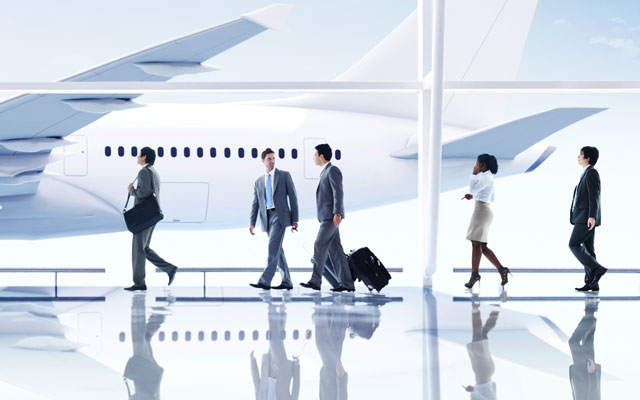
An ever-changing state of travel guidelines and new security risks amid the pandemic and challenging economic conditions have led travel management specialists to rely even more heavily on technology to get timely messages out to corporate travellers.
Prior to the onset of the pandemic, FCM Travel Solutions integrated WorldAware Intelligence within Sam, the company’s mobile chatbot, to allow it to send relevant WorldAware travel alerts directly to travellers.

With the pandemic impacting corporate travel confidence and plans, the company’s managing director, Asia, Bertrand Saillet, said this intelligence-driven approach to traveller duty of care would continue to be important and must be adapted to the new normal, which sees “an even greater emphasis on border restrictions, airline and carrier health and safety protocols, quarantine updates and social distancing measures taken at a traveller’s destination”.
FCM Travel Solutions has also created Traveller Hub, a one-stop site which carries information on border restrictions as well as updates from airports, airlines, hotels and ground transport operators on their latest protocols.
To help travellers and their employers make sense of the “influx of information coming through the media daily”, Saillet said TMCs today must help to filter out “relevant and timely content to clients and travellers”.
Jo Sully, vice president and general manager, Asia-Pacific, American Express Global Business Travel, has also acknowledged the fluid nature of travel-related information today, saying that “government and travel supplier guidelines have the potential to change country by country on a daily basis”.
This “period of potentially constant change” requires the use of technology to ensure timely contact with corporate travellers, opined Sully.
American Express Global Business Travel uses a communications arsenal that includes live webchat, in-app messaging, real-time situational updates via smartphones, location trackers through their credit card usage data, SMSes and telephone calls.
Saillet added that yet another critical step today is for organisations to evaluate their travel risk footprint.
“This includes an audit of their travellers’ most frequented destinations, and to weigh the pros and cons of (continued assignments) to those locations,” explained Saillet.
Companies should also respect a traveller’s request to sit out a travel assignment in these uncertain times. Should staff still be willing to travel, companies can enhance their risk management with a comprehensive duty of care plan, which includes pre-trip protocols prior to departure to inform employees of potential risks they may encounter.
When asked for his view of the corporate travel landscape, Saillet predicts that activity will not return to 100 per cent before summer 2021.
Moreover, with the emphasis placed on safety and hygiene, suppliers – from airlines and hotels to ground transport operators – will need to review their sanitisation measures and policies. These measures are expected to affect a travel manager’s decision when closing corporate deals and RFPs.
Regardless of the existing barriers to corporate travel, Sully believes that the world will travel again, for “there is no substitute for in-person, face-to-face experiences”.




















